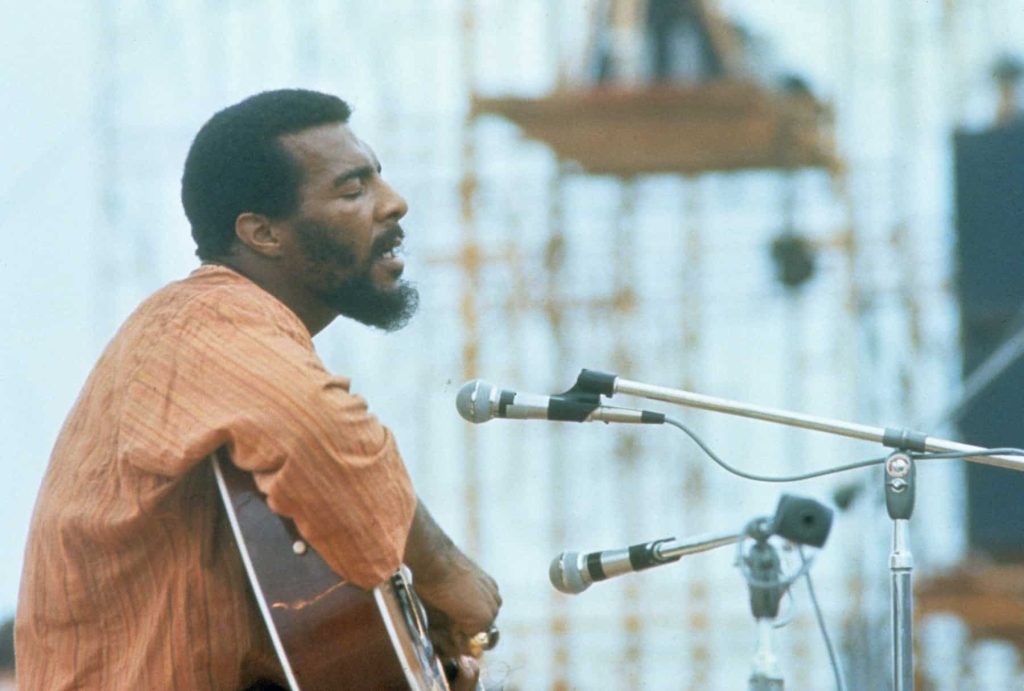
A Soulful Rendition of Vulnerability: Richie Havens’ “Just Like a Woman”
Richie Havens, a name synonymous with the folk music scene of the 1960s and a powerful presence at the legendary Woodstock festival, possessed a unique guitar style and a deeply emotive voice. While “Just Like a Woman” was originally penned and performed by Bob Dylan, Havens’ interpretation transforms the song into a poignant exploration of vulnerability and emotional complexity. Though charting information specific to Havens’ version is scarce (as it wasn’t released as a single and was more of a live staple), its impact lies in its reinterpretation and the emotional resonance it found with audiences.
This wasn’t a chart-topping single in the traditional sense; it was an album track, a live performance highlight, a piece woven into the fabric of Havens’ concerts, resonating deeply with his devoted following. Havens, known for his intense strumming style and soulful delivery, imbued the song with a raw honesty that resonated with listeners seeking more than just a surface-level understanding of the lyrics.
The original song, from Dylan’s 1966 album Blonde on Blonde, is often interpreted as a commentary on the complexities of female identity and societal expectations. It paints a picture of a woman oscillating between strength and vulnerability, independence and a yearning for comfort. Havens, however, strips away some of the original’s ambiguity, focusing on the raw emotion inherent in the lyrics. His gravelly voice, combined with his distinctive open-tuning guitar style, creates a sense of intimacy and immediacy, as if he’s sharing a deeply personal confession.
Havens’ version, often performed live, becomes less about societal commentary and more about the universal experience of emotional fragility. He emphasizes the lines about “rain” and “fog,” metaphors for emotional turmoil, turning the song into a bluesy lament. His delivery is less cynical than some interpretations of Dylan’s version, instead conveying a sense of empathy and understanding.
The power of Havens’ interpretation lies in its simplicity and its emotional honesty. He doesn’t try to reinvent the song; he simply allows its inherent emotional core to shine through. His performance becomes a testament to the power of music to transcend genre and personal experience, connecting with listeners on a deeply human level. For those who experienced the folk music scene of the 60s and 70s, or for anyone who appreciates raw, emotive musical expression, Havens’ “Just Like a Woman” offers a profound and moving experience. It is a reminder of the power of music to touch our souls, to remind us of shared human experiences, and to evoke feelings of both melancholy and deep understanding. It’s not just a cover; it’s a reinterpretation, a testament to the transformative power of a truly gifted artist. The way he delivered the line “She breaks just like a woman” is filled with so much tenderness and understanding that it becomes the emotional center of the song. It’s a performance that stays with you long after the last note fades.